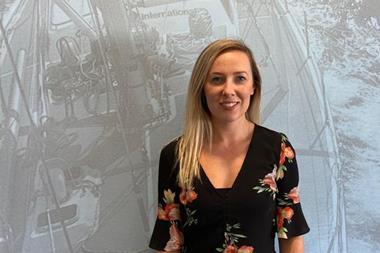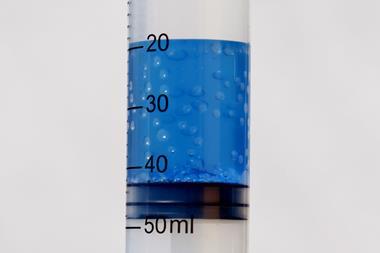Everything you need to know
-
- Salary range: £25–40k
- Minimum qualifications: Degree-level qualifications (including master’s)
- Skills required: Analytical skills, technical skills, laboratory techniques, numeracy skills, data analysis, communication skills, research skills, problem solving, teamwork.
- Training required: Training on how to use specialist laboratory equipment.
- Work–life balance: Working within a laboratory-based role will likely mean working structured, business hours.
- Career progression: I’d say working for an SME (small and medium enterprise) you get a lot more of a feel for what’s going on in the rest of the business, you get involved with things you wouldn’t do in a much larger company, where you’d have a much more defined role.
- Locations: Find related work experience positions using our map of employers
More profiles like Robert's
Robert works at a company that uses polymers to solve problems in common consumer products. In real terms that means developing materials which can improve the properties on products in many areas such as cosmetics, adhesives, household products, and chewing gum.
What do you do in your job?
In a typical day I’ll come down to the lab and I’ll put a reaction on and then polymers that I’ve prepared on previous days, I’ll test their properties, analyse them, and I’ll also write up previous experiments. One of the other tasks which I do quite often is to read up on research papers or patents to study what other things have been done in the past. I try to think of a best approach to solving the problem.

How did you get into your job?
When I started off at secondary school the sciences and maths were always my favourite subjects. So I stuck with those because I was good at them and I enjoyed them and continued on to A-level. It was always the chemistry which I preferred more to the other sciences, because I tend to prefer the practical side and problem-solving side, rather than just the theoretical side.
That led me on to study a chemistry degree at Manchester University. Towards the end of my final year I was tending towards doing. So I decided to apply for jobs in the chemistry industry, and it was always polymer science which was most enjoyable to me at university, so I decided to apply for polymer chemistry companies. As well as the large companies I actually decided to apply to smaller companies, because I thought there there’d be a better chance of progression.
What are the opportunities for career progression?
I’d say working for an SME (small and medium enterprise) you get a lot more of a feel for what’s going on in the rest of the business, you get involved with things you wouldn’t do in a much larger company, where you’d have a much more defined role.
What advice would you give for people wishing to enter your career area?
I think it’s important that you go into an area of chemistry that you enjoy because then you’ll come into work and you’ll enjoy it and you’ll enjoy the work that you’re doing, on a day-to-day basis, and having an interest in work will help you go a lot farther in the industry, rather than somebody who’s turning up to work every day and not really enjoying what they’re doing.
Chemistry’s such a broad subject, on one side you can be working on developing pharmaceutical ingredients, whereas on the other side you can work on developing plastics.
The most important thing is to get the company right, so you come into work every day and have the job satisfaction, and then you find the right balance in your personal and your work lives.
First published 2013
























